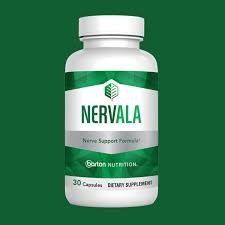A healthy pregnancy starts with proper nutrition, and prenatal vitamins are designed to bridge any gaps in an expectant mother’s diet. They provide the essential nutrients that support your baby’s development and keep you strong throughout pregnancy. Understanding which vitamins matter most, and why, helps ensure you’re giving yourself and your baby the best possible foundation for growth and health.
The Importance of Prenatal Vitamins
Prenatal vitamins are more than just supplements; they’re an important safeguard for your health and your baby’s well-being. During pregnancy, your body’s nutritional needs increase, and it can be difficult to get everything you need from food alone. Vitamins and minerals like folic acid, iron, calcium, and vitamin D play a crucial role in supporting the rapid changes happening inside your body.
Taking a prenatal vitamin helps reduce the risk of complications, from neural tube defects to low birth weight. It also ensures that your reserves don’t become depleted, protecting your long-term health while nourishing your developing child. Consulting your doctor early can help you choose the right formulation for your needs.
Folic Acid: Building a Strong Start
Folic acid is one of the most important nutrients for pregnant women, particularly in the first trimester. It helps your baby’s brain and spinal cord develop properly, greatly reducing the risk of neural tube defects. Because these structures form so early, it’s best to start taking folic acid as soon as you begin planning a pregnancy, or as soon as you find out you’re expecting.
Most prenatal vitamins contain the recommended daily amount of folic acid, but some women may need higher doses if advised by a healthcare professional. Eating folate-rich foods such as leafy greens, lentils, and fortified cereals can also support your intake alongside supplementation.
Iron: Supporting Blood and Energy Levels
Iron is vital during pregnancy because your body needs to make extra blood to support your growing baby. A lack of iron can lead to anemia, which causes tiredness, weakness, and breathlessness. Taking a prenatal vitamin with iron ensures you have enough to meet your increased demands.
Pairing iron with vitamin C-rich foods, such as citrus fruit or bell peppers, can enhance absorption. If you experience side effects like constipation, discuss alternatives with your doctor, who may recommend a different formulation or dosage to make supplementation more comfortable.
Calcium and Vitamin D: Strengthening Bones and Teeth
Your baby’s skeleton develops rapidly, particularly in the second and third trimesters. Calcium is essential for forming strong bones and teeth, while vitamin D helps your body absorb and use calcium effectively. Without enough, your baby may draw these minerals from your own stores, leaving you at risk of weakened bones.
Dairy products, fortified plant milks, and leafy greens provide calcium, while sunlight exposure and fortified foods offer vitamin D. However, many pregnant women benefit from additional supplementation to ensure their levels remain adequate, especially during winter or if they spend little time outdoors.
Omega-3 Fatty Acids: Nurturing Brain Development
Omega-3 fatty acids, particularly DHA, support your baby’s brain and eye development. They also contribute to a healthy nervous system and may even reduce your risk of premature labour. While oily fish such as salmon and sardines are excellent sources, not everyone eats enough to meet the recommended intake.
Prenatal vitamins containing omega-3 can fill this gap without the risk of excessive mercury, which should be avoided during pregnancy. Plant-based alternatives, like algae-based DHA supplements, are suitable for vegetarians and vegans looking for a safe way to include these important fats.
Vitamin B12: Boosting Nerve Health and Energy
Vitamin B12 works hand in hand with folic acid to support the development of your baby’s nervous system and to keep your red blood cells healthy. A deficiency can cause fatigue, weakness, or even long-term complications for both mother and baby. This is particularly important for those following vegetarian or vegan diets, as B12 is primarily found in animal products.
Prenatal vitamins generally include B12, but dietary sources like eggs, dairy, and fortified cereals are also helpful. If your levels are low, your healthcare provider might recommend additional supplementation or injections.
Iodine: Supporting Thyroid Function
Iodine plays a key role in maintaining healthy thyroid function, which regulates metabolism and is critical for your baby’s brain development. Even mild iodine deficiency during pregnancy can have long-term effects on your child’s cognitive abilities. Unfortunately, many diets don’t naturally provide enough of this mineral.
Prenatal vitamins containing iodine can help maintain adequate levels throughout pregnancy. Seaweed, dairy products, and fish are also good dietary sources, though supplementation is often the most reliable way to ensure you’re meeting your daily requirements.
When and How to Take Prenatal Vitamins
Timing and consistency are essential when taking prenatal vitamins. Ideally, start them before conception to prepare your body for pregnancy, and continue throughout gestation and, in some cases, while breastfeeding. Taking them with meals can help reduce the risk of nausea, a common side effect during the first trimester.
Remember that supplements aren’t a replacement for a balanced diet. Aim to eat a wide variety of fruits, vegetables, whole grains, lean proteins, and dairy or plant-based alternatives to support overall health. Prenatal vitamins work best alongside good nutrition and regular check-ups with your healthcare provider.
Where to Find Quality Prenatal Vitamins
Choosing high-quality prenatal vitamins ensures you and your baby receive safe, reliable nutrients. Products recommended by healthcare professionals are generally the best choice, as they meet specific standards for pregnancy. It’s also helpful to look for brands that clearly display their ingredients and dosages.
Expectant mothers in the UAE can explore options from mother care Dubai, where professional advice and a variety of trusted supplements are available.
Online platforms like mothercare UAE online also make it easy to browse, compare, and order prenatal vitamins from the comfort of home, ensuring you never miss a dose.
Final Thoughts
Prenatal vitamins are a simple but powerful way to support your baby’s growth and protect your own well-being during pregnancy. From folic acid to omega-3s, these nutrients play a vital role in everything from brain development to maintaining your energy levels. Taking the time to understand and prioritize them will help you feel confident and prepared as you embark on the journey of motherhood.







